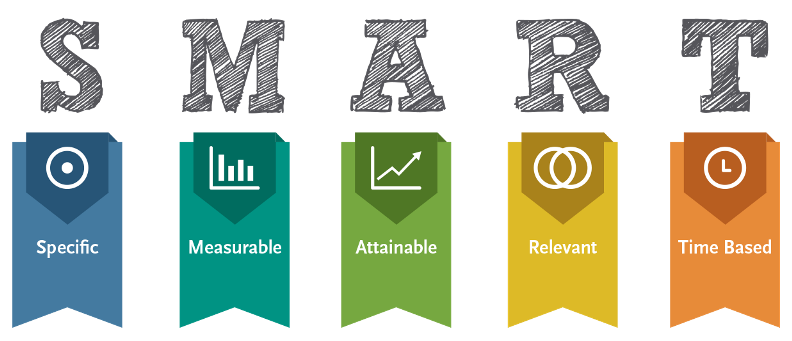TNS Experts
This post was submitted by a TNS experts. Check out our Contributor page for details about how you can share your ideas on digital marketing, SEO, social media, growth hacking and content marketing with our audience.
What are some of the best B2B content marketing tactics? Let's find that out from this blog.
Who’d work in B2C? It’s noisy, full of competing companies that does nothing more than create a race to the bottom with super-low pricing and, perhaps worst of all; you have to deal with the general public.
If you work in the B2B space, you’d be forgiven for taking a wry, sideways glance at the ensuing madness of the B2C world and thanking the heavens you don’t have to get involved.
That doesn’t make your job any easier, though. Just because your target market consists of businesses, it doesn’t mean they’re any easier to engage than consumers. You still need to grab their attention and hold it for as long as possible - and in a world full of digital distractions, that isn’t easy at all.
This is why content marketing remains one of the best ways to establish thought leadership and to inspire trust among any B2B customer base. Great content can position your business as an expert within its field and draw in followers who, eventually, are likely to turn into customers.
Where do you start, though? If you create a blog page on your website, what sort of content should you post? How do you define the target audience? How can you ensure the content you produce doesn’t disappear without trace?
If you’re just getting started, or need to light a fire under your existing promotional activity, we’ve compiled the absolute best B2B content marketing tactics that will help you get your own content marketing cycle underway.
The worst thing you can do in content marketing is simply start a blog for your business. Sure, you now have a page on your website labelled ‘blog’, but what are you going to do with it?

Creating content without first setting goals and objectives is likely to be as successful as creating no content at all. Specific, measurable, attainable, relevant and timely (S.M.A.R.T.) goals are vital.
What do you want to achieve with your content? More newsletter sign-ups? Increased leads? Social shares? Set a goal and stick to it.
Even if you’ve set your content marketing goals, creating content without a solid idea of who its for will leave it lacking focus and, ultimately, out of sight from those who matter.

You’ll need to create four or five ‘buyer personas’. These are fictional characters who represent your target market. You can give them a name and write a two or three paragraph story that describes their likes, dislikes, family configuration and the frustrations they have.
Whenever you create a piece of content, keep the relevant buyer persona at the forefront of your mind at all times. Depending on the format of the content, write or talk as if they’re the only person in the room.
You’re not superhuman. In order to run an effective content marketing campaign, you’ll need to keep lots of plates spinning simultaneously. You’ll need to know which pieces are due to be created next and ensure that the promotion of those already published happens in a timely fashion. Oh, and you need to track the results, too.
Lots’ to do!
For that reason, it’s essential you invest in some form of productivity management system. The Kanban technique is popular with content marketers, as it provides a clear bird’s eye view of exactly what’s going on at any moment in time. Try it!
Content without any form of call to action (CTA) is virtually worthless. You need to ensure everything you create is relevant for your audience, but also actionable. Teach them something and explain how they can implement it in their own jobs, for example.
LinkedIn may seemingly be the only outwardly corporate social network, but don’t fall into the trap of assuming Facebook is simply a playground for people intent on sharing funny videos of cats; it’s also an ideal hunting ground for any B2B operation.
People within your target market will likely be on Facebook while at work, but equally, will be hitting their news feed when they put their feet up during the evening. Stand a chance of appearing in that very list by amplifying your content via Facebook’s advertising platform.
If a publishing deadline looms and you’re short of ideas, don’t make the mistake of creating without thinking. It doesn’t matter if you miss this week’s post if, in doing so, you can instead conduct meaningful research into what will make a fabulous piece of new content.
Which of your past content efforts performed best? What about the competition? What are they getting right? Where have they slipped up?
By using tools like impactana.com and BuzzSumo, you can identify the pieces of content that have performed well for your competitors and replicate their success (or avoid their failures) by offering your own take.
Just be careful to avoid vanity stats; ‘Likes’ on Facebook are nice, but don’t necessarily equate to business success.
The 80/20 rule applies to content marketing, but not in the way you might think. You should spend just 20% of your time on the production of the content itself, but the remaining, lion’s share on promotion of said content. People need to engage with it, after all.
As noted previously, use paid promotion on platforms like Facebook, but also consider LinkedIn, Twitter Ads and StumbleUpon advertising. We now live in a ‘pay to play’ market, where you simply have to dip your hand into your marketing budget occasionally to be heard within the digital marketplace.
Content marketing is uniquely addictive and can be hugely successful, but it takes patience. Growing the right audience organically requires many months’ hard work and the ability to pick oneself up after failure.
Before we go, we’ve got five more bonus tips for you:
Most importantly, have fun creating content - you’re working with one of the most exciting forms of marketing available to B2B businesses.
You’ll also receive some of our best posts today

This post was submitted by a TNS experts. Check out our Contributor page for details about how you can share your ideas on digital marketing, SEO, social media, growth hacking and content marketing with our audience.

Mobile devices have become an integral part of our lives in this digital...
Don’t miss the new articles!